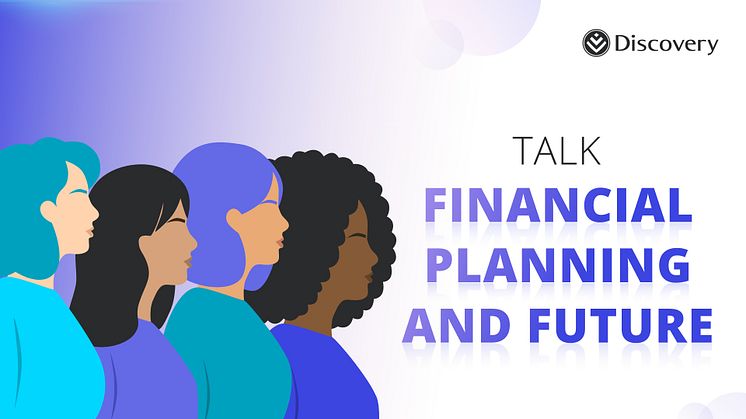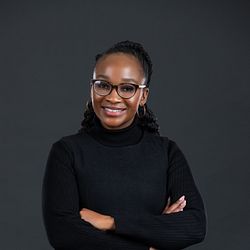
Press release -
Discovery Life making strides in closing the insurance gap
In 2022, the International Labour Organisation (ILO) found that the labour force participation rate for women stands at 47% globally, compared to 72% for men. That report also showed that women perform 76% of unpaid care work globally. Where women are employed, the World Economic Forum found that South Africa’s gender pay gap, depending on occupation, can be as much as 35%.
However, research has found that 42% of South African households have female breadwinners, while women are three times more likely to stay home to care for a sick child. In addition, women tend to live between 5 and 7 years longer than men, resulting in a longer time spent in retirement. All this points to the need for women to safeguard their income and thus their financial futures against life-changing events.
Discovery Life Deputy CEO, Gareth Friedlander, points out that the gap between men's and women’s income has ignited a decades-long debate about fair pay and equal pay for equal work. However, there’s still a lot that needs to be done to correct the disparity that the gap in unpaid care work creates when it comes to perceived human capital worth attached to women versus men.
“The problem is that the value of unpaid care work that women perform is not quantified in rands and cents because they do it for free. So, their human capital worth is understated, which is why women in South Africa and many other countries face a huge insurance gap,” said Friedlander.
Discovery Life research and market analytics senior manager Kashmeera Kanji pointed out that this is problematic in a country like South Africa, where more than 40% of families are headed by single mothers.
“Nearly 43% of every household in South Africa is single-handedly being raised by a woman. They are breadwinners, and at the same time, they are caretakers of these families. Furthermore, global statistics show that women are three times more likely to stay at home and care for a sick child. This does add to the social inequality,”
Because of this persistent socio-economic inequality, women face a large insurance gap. The Association for Savings and Investment South Africa’s 2022 insurance gap study showed that South African women only have 40% of death cover and 45% of the disability benefits they need. This means in the event of death, their families would have to do with 60% less support than they used to get from their mothers, wives, and other female figures who kept the household running. This already concerning statistic is further understated as the Gap analysis does not account for all the unpaid care work that females perform.
“This is very problematic in a country like South Africa, where more than 40% of families are headed by single mothers,” added Friedlander.
Why we need to close women’s gap
According to international research, women live five to seven years longer than men, and this is aligned with the life expectancy of South Africans.
This means that women spend a longer time in retirement where any health conditions, which affect their ability to perform tasks become more prevalent. They are then forced to stretch their limited savings to cover medical expenses too, further adversely eroding any retirement funding in place.
This is even more concerning when considering the World Health Organization's (WHO) Cancer Fact Sheet, which shows that more than 9 million women are diagnosed with cancer every year globally. Female financial prospects are further impacted by the 30% relapse rate among breast cancer patients, increasing the risk of developing other cancers.
“What comes to my mind when I see these statistics is how important resilience is. It’s hard enough for women particularly, women in South Africa to plan. Women are earning less. They are doing a lot more unpaid work. They are living longer in retirement, typically with a smaller nest egg. There are multiple trends that compound to create a more complex financial planning environment for them,” said Friedlander.
He said it is with this context in mind that Discovery Life has built life insurance products which specifically cater to these challenges and risks, and while it is extremely encouraging to see that women are making good strides towards equality within our book with 49% of our policyholders now being female, there is still much work to do in terms of ensuring sufficient cover for women to bridge these gaps,” remarks Friedlander. These products recognise that when a woman passes away or is disabled, they need to replace more than just the nominal income they were earning and that the entire family is considered.
“It’s about all the impact that woman had on her family’s life. It’s not just about that money but it’s also about who is going to do all those unpaid tasks. All that needs to be considered, and we are certainly thinking about it from a product perspective,” added Friedlander.
Discovery Life’s 2022 claims data reveals why it is urgent to close the insurance gap women currently face:
- In 2022, Discovery Life recorded an increase in the proportion of late-stage (Stage 3 and 4) cancers under Severe Illness Benefit claims.
- Under the age of 30, women are 1.6 times more likely to claim for cancer than men.
- 42% of female severe illness claims were due to cancer for clients between the ages of 31 and 40.
- In the age bracket of 41 to 50 years, 44% of all income protection claims came from female clients.
- Between ages 51 to 60, 35% of income protection claims paid to women were for permanent disabilities.
- Above 60, 51% of female severe illness claims were due to cancer.
Discovery’s Chief Medical Officer Maritha van Der Walt said they’ve observed more women at younger ages diagnosed with breast cancer. She said this is likely a result of better screening programmes and higher awareness than in the past. She pointed out that caught at early stages, these women have around 90% recovery rate.
Friedlander says preventative routine screening has never been more important, especially after the setback experienced during Covid-19. Discovery Health data insights show that screening for pap smears dropped by 12% between 2019 and the end of 2022. Mammogram screenings were down 15%. This is why Discovery Health is encouraging and rewarding preventative screenings through various initiatives, including the WELLTH Fund and Vitality Health Check reward points.
It does appear that women are improving their financial protection and increasingly taking out insurance products to safeguard their income. Discovery Life has uptake of the Income Continuity Benefit (ICB) product by women grow by over 10% over the past decade, with women accounting for more than 40% of clients with this product. Another encouraging observation is that our female clients account for 54% of clients making use of our estate planning solution.
“We all need to do our part to improve women’s financial resilience because they do so much more with very little. Let’s close the wage gap, the wealth gap, the insurance gap, and any other gap that fails to recognise the true value of all the work women do,” concludes Friedlander.
Topics
Categories
Discovery information
About Discovery
Discovery Limited is a South African-founded financial services organisation that operates in the healthcare, life assurance, short-term insurance, banking, savings and investment and wellness markets. Since inception in 1992, Discovery has been guided by a clear core purpose – to make people healthier and to enhance and protect their lives. This has manifested in its globally recognised Vitality Shared-Value insurance model, active in over 35 markets with over 20 million members. The model is exported and scaled through the Global Vitality Network, an alliance of some of the largest insurers across key markets including AIA (Asia), Ping An (China), Generali (Europe), Sumitomo (Japan), John Hancock (US), Manulife (Canada) and Vitality Life & Health (UK, wholly owned). Discovery trades on the Johannesburg Securities Exchange as DSY.
Follow us on Twitter @Discovery_SA



